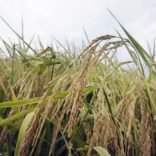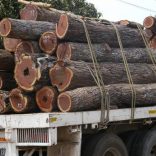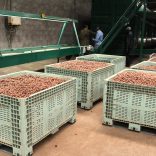Debts hamper livestock vaccination efforts in Mozambique
Mozambique to host AFAP meeting on food security and prosperity

AFAP (Courtesy photo)
Mozambique will in October 2017 host the East and Southern Africa fertilizer and agribusiness leaders’ meeting, called to discuss how to boost regional food security and prosperity.
The conference will be held on 9-11 October 2017. It is to be attended by 300 visitors from 28 different countries, who will join senior government figures and leading industry executives, APA can report on Monday.
A joint media statement seen by APA on Monday from the African Fertilizer and Agribusiness Partnership (AFAP) said the delegates will gather to discuss the technical and commercial challenges facing the fertiliser and agribusiness industries in the region.
The three-day conference was co-organised by the Commodities Research Unit, a leading, independent global, metals, mining and fertilisers analysis, consultancy and conference business group.
“The leaders of fertiliser production and trade from across the region will all be participating in discussions. They will be joined by representatives of the development and investment community such as the African Development Bank, AGRA, One Acre Fund and the Alliance for Commodity Trade in East and Southern Africa (ACTESA)”, said Nicola Coslett, CEO of CRU Eventst in the statement.
Severe hunger in Africa could become a thing of the past even in arid regions. Long-term strategies to build resilience to the harsh climates that decimate crops and cattle do exist and need implementing with urgency. In Africa, these strategies that can lead to major productivity gains in the face of climate change, start with soil.
The UN Food and Agriculture Organisation released a statement recently declaring that soil management could make or break climate change efforts. This is because our soils hold the most potential for capturing and storing the excessive amounts of carbon dioxide in the atmosphere that exacerbate global warming.
In its fourth Assessment Report, the Intergovernmental Panel on Climate Change estimated that 90 percent of agriculture’s climate change mitigation potential lies in soil carbon sequestration.
But, according to agriculture experts, degraded soils are less able to capture and store carbon than healthy, fertile soils. And in nowhere in the world are soils as degraded as they are in Africa.
It is estimated that around 65 percent of Africa’s soils are degraded, and despite being home to 10 percent of the world’s population, Africa accounts for just 3 percent of global fertiliser use. Without a good balance of organic and mineral fertilisers, soils are unable to nourish healthy food crops. When soils starve, so do people.













Leave a Reply
Be the First to Comment!
You must be logged in to post a comment.
You must be logged in to post a comment.